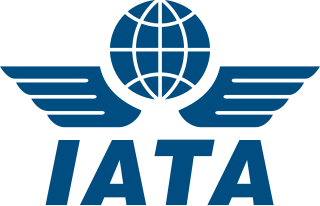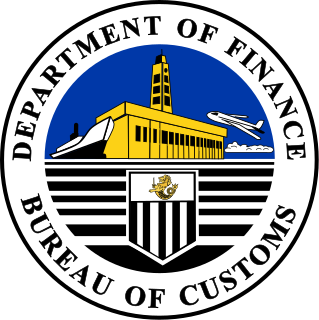
A single market is a type of trade bloc in which most trade barriers have been removed with some common policies on product regulation, and freedom of movement of the factors of production and of enterprise and services. The goal is that the movement of capital, labour, goods, and services between the members is as easy as within them. The physical (borders), technical (standards) and fiscal (taxes) barriers among the member states are removed to the maximum extent possible. These barriers obstruct the freedom of movement of the four factors of production.

The World Trade Organization (WTO) is an intergovernmental organization that is concerned with the regulation of international trade between nations. The WTO officially commenced on 1 January 1995 under the Marrakesh Agreement, signed by 123 nations on 15 April 1994, replacing the General Agreement on Tariffs and Trade (GATT), which commenced in 1948. It is the largest international economic organization in the world.

The International Air Transport Association is a trade association of the world's airlines founded in 1945. IATA has been described as a cartel since, in addition to setting technical standards for airline, IATA also organized tariff conferences that served as a forum for price fixing.
A warrant is generally an order that serves as a specific type of authorization, that is, a writ issued by a competent officer, usually a judge or magistrate, that permits an otherwise illegal act that would violate individual rights and affords the person executing the writ protection from damages if the act is performed.

An export in international trade is a good or service produced in one country that is sold into another country. The seller of such goods and services is an exporter; the foreign buyer is an importer.

The Dominican Republic– Central America Free Trade Agreement (CAFTA-DR) is a free trade agreement. Originally, the agreement encompassed the United States and the Central American countries of Costa Rica, El Salvador, Guatemala, Honduras, and Nicaragua, and was called CAFTA. In 2004, the Dominican Republic joined the negotiations, and the agreement was renamed CAFTA-DR.

Frank William Taussig was an American economist and educator. Taussig is credited with creating the foundations of modern trade theory.

The United States International Trade Commission is an independent, bipartisan, quasi-judicial, federal agency of the United States that provides trade expertise to both the legislative and executive branches. Furthermore, the agency determines the impact of imports on U.S. industries and directs actions against unfair trade practices, such as subsidies, dumping, patent, trademark, and copyright infringement.
A free trade agreement (FTA) or treaty is a multinational agreement according to international law to form a free-trade area between the cooperating states. FTAs, a form of trade pacts, determine the tariffs and duties that countries impose on imports and exports with the goal of reducing or eliminating trade barriers, thus encouraging international trade. Such agreements usually "center on a chapter providing for preferential tariff treatment", but they also often "include clauses on trade facilitation and rule-making in areas such as investment, intellectual property, government procurement, technical standards and sanitary and phytosanitary issues".
In England and Wales, life imprisonment is a sentence which lasts until the death of the prisoner, although in most cases the prisoner will be eligible for parole after a fixed period set by the judge. This period is known as the "minimum term", usually a few years. In some exceptionally grave cases, however, a judge may order that a life sentence should mean life by making a "whole life order."

The Criminal Justice Act 2003 (c.44) is an Act of the Parliament of the United Kingdom. It is a wide-ranging measure introduced to modernise many areas of the criminal justice system in England and Wales and, to a lesser extent, in Scotland and Northern Ireland.
Murder is an offence under the common law of England and Wales. It is considered the most serious form of homicide, in which one person kills another with the intention to cause either death or serious injury unlawfully.The element of intentionality was originally termed malice aforethought, although it required neither malice nor premeditation. Baker, chapter 14 states that many killings done with a high degree of subjective recklessness were treated as murder from the 12th century right through until the 1974 decision in DPP v Hyam.
Tariffs have historically served a key role in the nation's foreign trade policy.Their purpose was to generate revenue for the federal government and also to allow for import substitution industrialization by acting as a protective barrier around infant industries.. They also aimed to reduce the trade deficit and the pressure of foreign competition. Tariffs were one of the pillars of the American System that allowed the rapid development and industrialization of the United States. Between 1861 and 1933, the United States had one of the highest average tariff rates on manufactured imports in the world. However American agricultural and industrial were cheaper than rival products and the tariff had an impact primarily on wool products. After 1942 the U.S. promoted worldwide free trade.

The Court of Tax Appeals of the Philippines is the special court of limited jurisdiction, and has the same level with the Court of Appeals. The court consists of 8 Associate Justices and 1 Presiding Justice. The Court of Tax Appeals is located at Agham Road, Diliman, Quezon City in Metro Manila.
The Criminal Injuries Compensation Authority (CICA) is an executive agency of the UK Government. The Authority, established in 1996 and based in Glasgow, administers a compensation scheme for injuries caused to victims of violent crime in England, Scotland and Wales. It is funded by the Ministry of Justice in England and Wales and the Justice Directorate in Scotland. The current Chief Executive is Linda Brown.

R v Secretary of State for the Home Department ex parte Fire Brigades Union[1995] UKHL 3 was a House of Lords case concerning the awarding of compensation under the Criminal Injuries Compensation Scheme. The case is considered significant in constitutional terms for its ruling on the extent of Ministerial prerogative powers.
Disability hate crime is a form of hate crime arising from the hostility of the perpetrator towards the disability, or perceived disability, of the victim, or because of their perceived connection to disability. It is often viewed politically as a logical extreme of ableism, carried through into criminal acts against the person. This phenomenon can take many forms, from verbal abuse and intimidatory behaviour to vandalism, assault, or even murder. Disability hate crimes may take the form of one-off incidents, or may represent systematic abuse which continues over periods of weeks, months or even years.
Four referendums were held in Switzerland during 1903. The first was held on 15 March on a federal law on tariffs, and was approved by 59.6% of voters. The second, third and fourth were all held on 25 October concerning an amendment to the federal criminal law, a popular initiative on Swiss residents electing the National Council and an amendment to article 32bis of the constitution. All three were rejected by voters.
Water supply and sanitation in Italy is characterized by mostly good services at prices that are lower than in other European countries with similar income levels. For example, the average monthly residential water and sewer bill in Italy is 20 Euro compared to 31 Euro in France. According to the OECD, water in Italy has been underpriced for a long time. With about 240 liter per day, per capita water use for residential uses in Italy is higher than in Spain or in France, where it is about 160 liter per day. Water resources in Italy are distributed unevenly, with more abundant resources in the North and scarcer resources in the South. Most water withdrawals are for agriculture and industry, with only 18 percent of water withdrawals made for drinking water supply. About one third of the water withdrawn for municipal supply is not billed to the customers because of leakage, malfunctioning water meters and water theft.

The Bureau of Customs is a Philippine government agency under the Department of Finance. The Bureau of Customs was established on February 6, 1902 by the Insular Government of the Philippine Islands of the United States of America, during the American Colonial Era of the Philippines.








